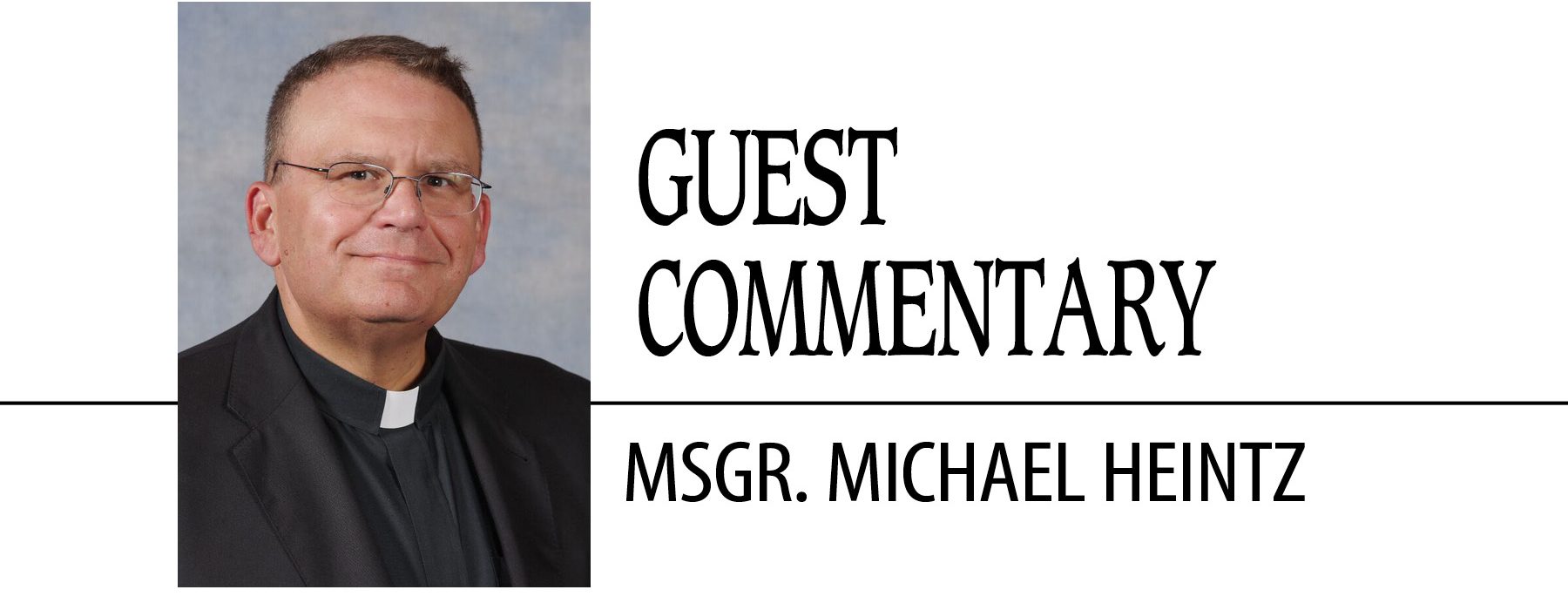June 7, 2023 // Perspective
Catholics and Intercommunion
Intercommunion, the reception of the Eucharist in the Catholic Church by non-Catholic Christians (or reception by Catholics in other Christian communities) is a very touchy subject. Many Catholics who have a non-Catholic spouse or who have friends of other Christian traditions often perceive that an injustice is being perpetrated, and that Catholic limitations on intercommunion are contrary to the nature of the Gospel’s teaching of love and acceptance. Why, then, are non-Catholics asked not to receive Eucharist at Mass?
The reasons behind the Catholic Church’s limitations on intercommunion are generally misunderstood. Quite often it is assumed that only Catholics are morally worthy to receive the Eucharist, while those who are not Catholic are unworthy because they are of another Christian denomination. This is not really the case. The rationale behind the Catholic Church’s limitations on intercommunion is not based upon moral or religious superiority. There are many believers — Presbyterians, Lutherans, Methodists, Episcopalians, Baptists, and others — who are perhaps morally or religiously better Christians than nominal Catholics. But that is not what is at stake in intercommunion. The Catholic discipline of not practicing intercommunion is based upon a theology of the Eucharist: what it is, what it does, and what it signifies.
It is clear from the New Testament and early Christian literature that the celebration of the Eucharist, the breaking of the bread, was part and parcel of the new-born Church’s self-understanding. In Luke’s description of the first Christian community (found in Acts 2.43-47), it is clear that the common life, prayer, and the Eucharist were the mainstay of the infant Church; that link between community life and the Eucharistic celebration is not insignificant. Justin Martyr, a convert to Christianity writing about 60-70 years after the evangelist Luke, lays down three prerequisites for admission to Eucharistic communion: baptism, acceptance of basic Christian doctrine, and a moral lifestyle. Justin further emphasizes the importance of what the later tradition would refer to as “real presence” — the Eucharist is not to be received as ordinary bread and wine, but as the flesh and blood of Jesus, who Himself took flesh for our salvation.
Many Christian denominations do not, in fact, share the same understanding of the Eucharist which Catholicism holds, teaches, and celebrates. Some view communion simply as a symbol and memorial of what Jesus has done for us. While such ideas about symbol and memorial are quite true, they are ultimately insufficient. Catholicism maintains that the Eucharist is more than a symbol: it is a special kind of sign which effects or brings about what it signifies (that is, in fact, what the word sacrament means). Jesus Christ, in the words of the Council of Trent (Session 13, October 1551), is truly present “body, blood, soul, and divinity” under the appearances of bread and wine. It is a re-presentation of the Paschal Mystery: all the power and promise of Christ’s life-giving death and resurrection are made present and available to us through the celebration of the Eucharist. The Mass is also more than a memorial meal. It is first a sacrifice, and its status as a meal is subordinated to its sacrificial reality. It is important properly to coordinate these two dimensions or aspects of the Eucharistic offering. It is a meal because it is first a sacrifice; the very nature of consuming a sacrifice is what establishes communion between the offeror and the one to whom the offering is made. There is nothing implicit in “meal” that is necessarily sacrificial. However, there is implicit in sacrifice necessarily an element of “meal” in that one shares in the offering by consumption. So, the Eucharist is both, but it is a meal because it is primarily a sacrifice, not a sacrifice that is essentially a meal. But doctrinal differences regarding the Eucharist are not the sole obstacle to intercommunion.
We need to look at what the Eucharist signifies and effects (does) in order to understand precisely why intercommunion is, in actuality, a counter-sign to the Eucharist itself. Thomas Aquinas (1225-1274) teaches that the ultimate end (what he calls the res) of the Eucharist is the building up and strengthening of the unity of the Church as Christ’s Body. The grace particular to the Eucharist is to draw communicants into greater unity with Christ and thus within the Body of Christ, the Church, by — at the same time — signifying that unity. The Eucharist, simply put, is both a sign and source of unity in the Church. This notion is neither new to Aquinas nor unique to him. An ancient Christian document called the Didache (compiled around 110 AD, just a generation or so after the New Testament texts) contains what is arguably the most ancient Eucharistic prayer. The prayer found in the Didache asks God not for private graces for individual believers, but to gather, protect, and safeguard His Church. Thus. the Eucharist is not only about uniting individual believers to Christ through a share in communion, but more fundamentally about uniting a community of believers together through their communion with Christ in the Eucharist. It is our Eucharistic communion with Christ that establishes the fraternal bond of charity among believers, not the other way round.
Based upon this summary of what the Eucharist is and what it does, it should become more evident why intercommunion poses a problem. When one receives the Eucharist, she is placing herself in communion of mind and heart with the Church. It is an act which signifies not only a spiritual union with other members of the Church, but also a public affirmation of the beliefs of that community and a commitment to the practice of the faith as it is experienced and shared by that community (recall Justin’s prerequisites). The reception of communion by members of a differing Christian denomination cannot be a sign of unity among those believers when, in fact, significant differences in belief and practice remain between Catholics and those of other Christian traditions (not to mention the differences among the Protestants and Christians of the reformed tradition themselves). Eucharistic communion would then be a counter-sign: it would signify a unity which does not (yet) exist among these Christians. This lack of unity is an unhappy reality, but a reality nonetheless. Praying publicly with Christians of other denominations (particularly through services of the Word) can be a rewarding and beautiful ecumenical venture. But sharing Eucharistic communion with other Christians would be a misuse of what the Eucharist is meant both to signify and effect. So, while we must strive for greater unity among all Christians, we should realize that the limitations on intercommunion are based not upon inequality or elitism (political and social categories), but rather are rooted in the very nature of what the Eucharist is and what it does.
The best news. Delivered to your inbox.
Subscribe to our mailing list today.






